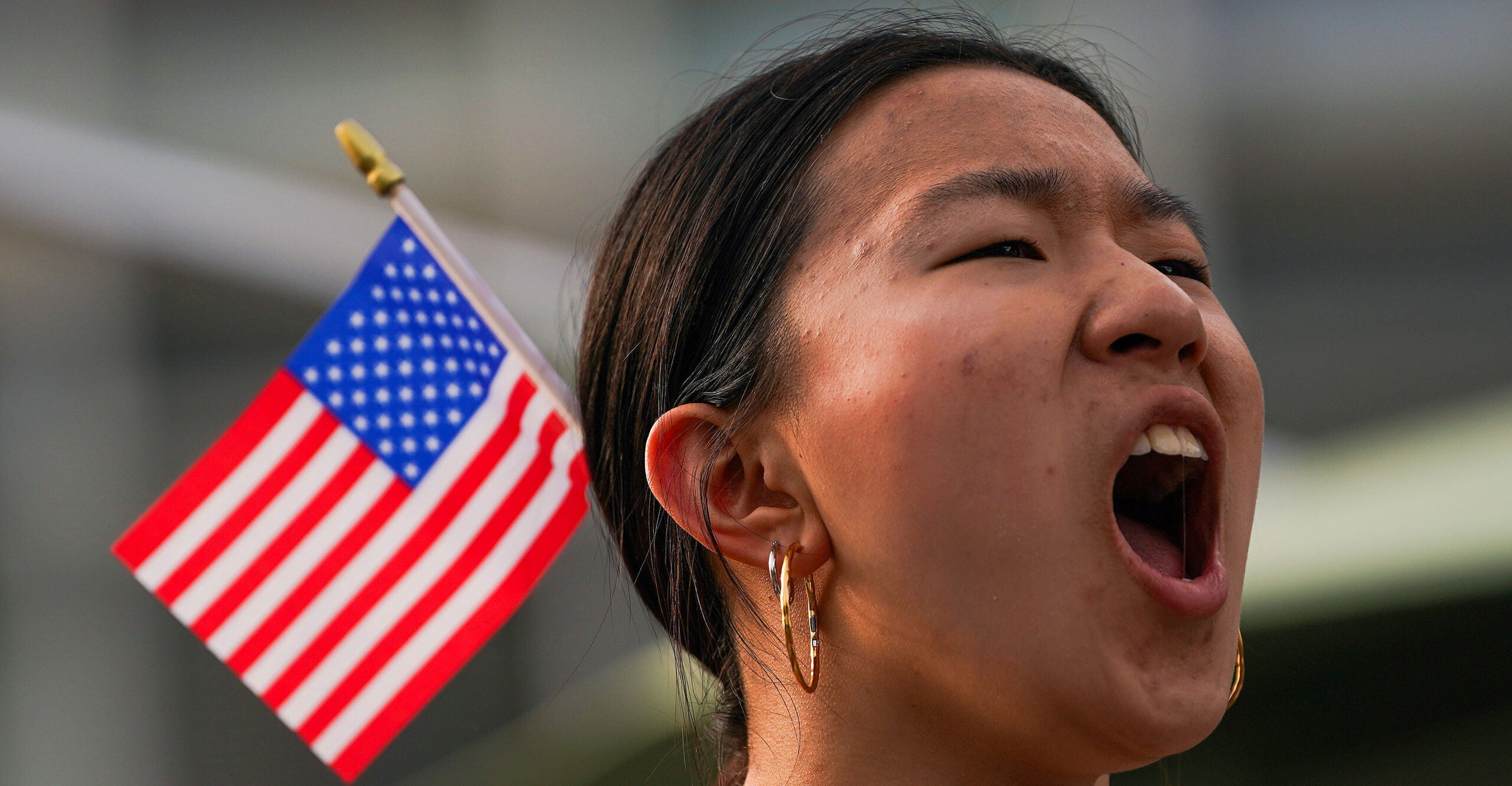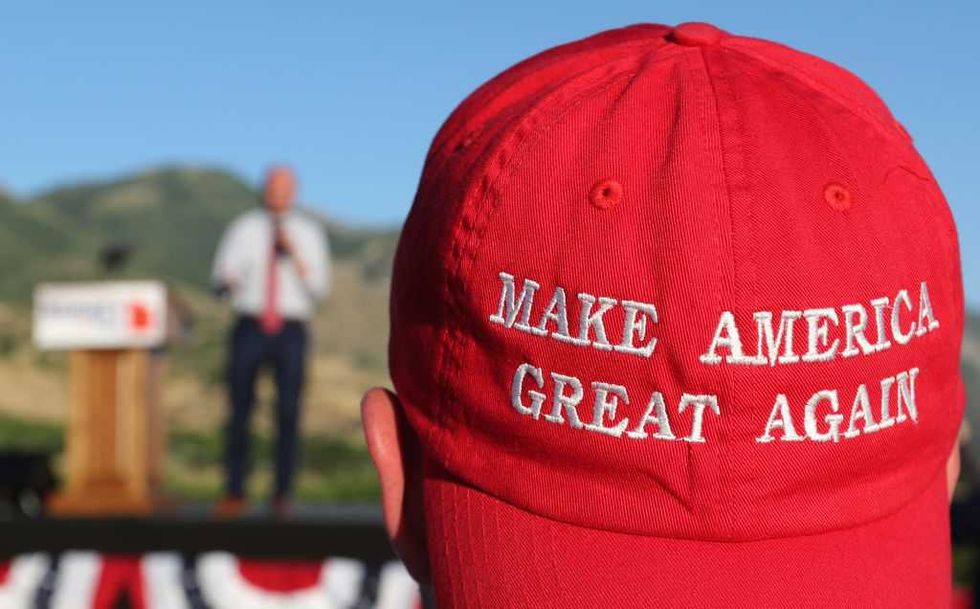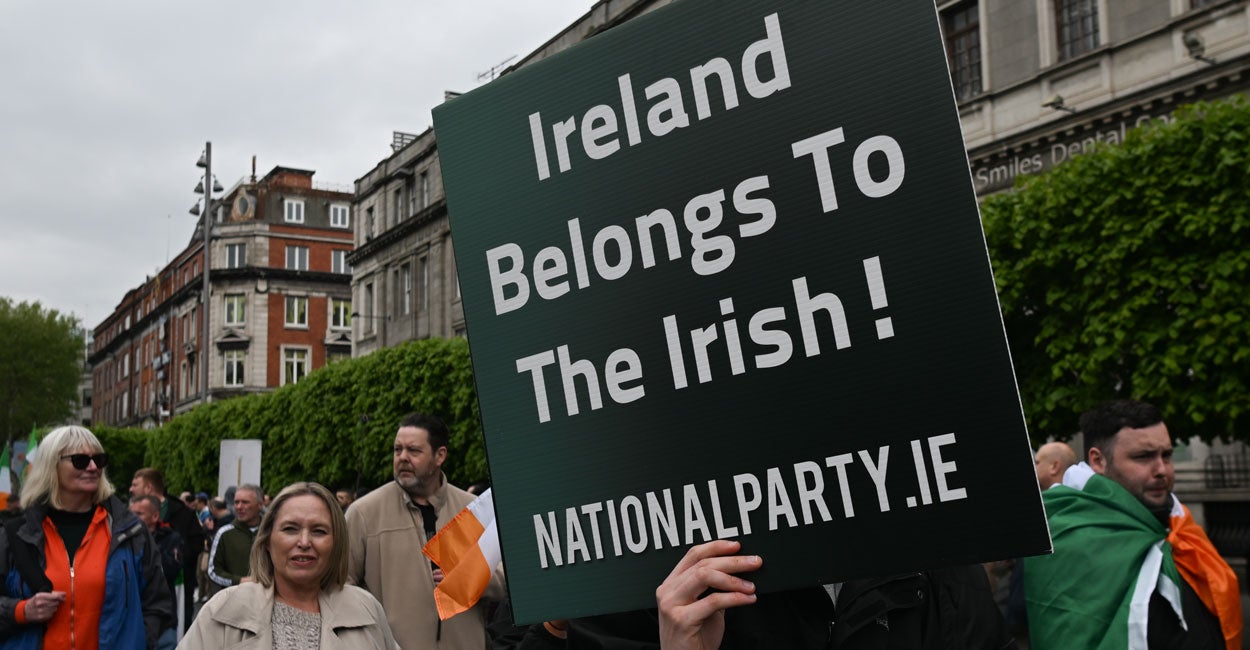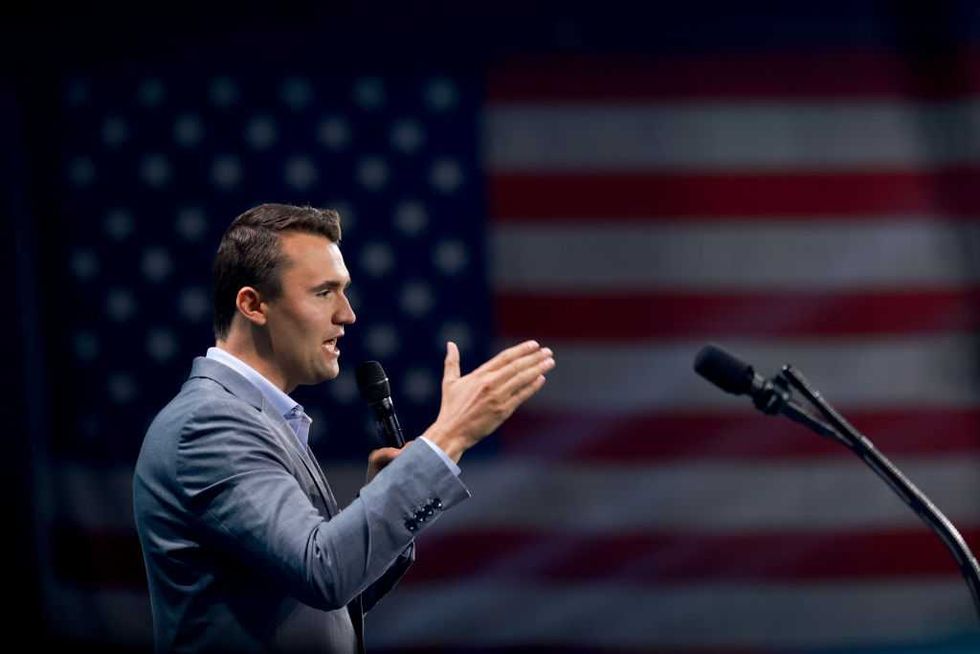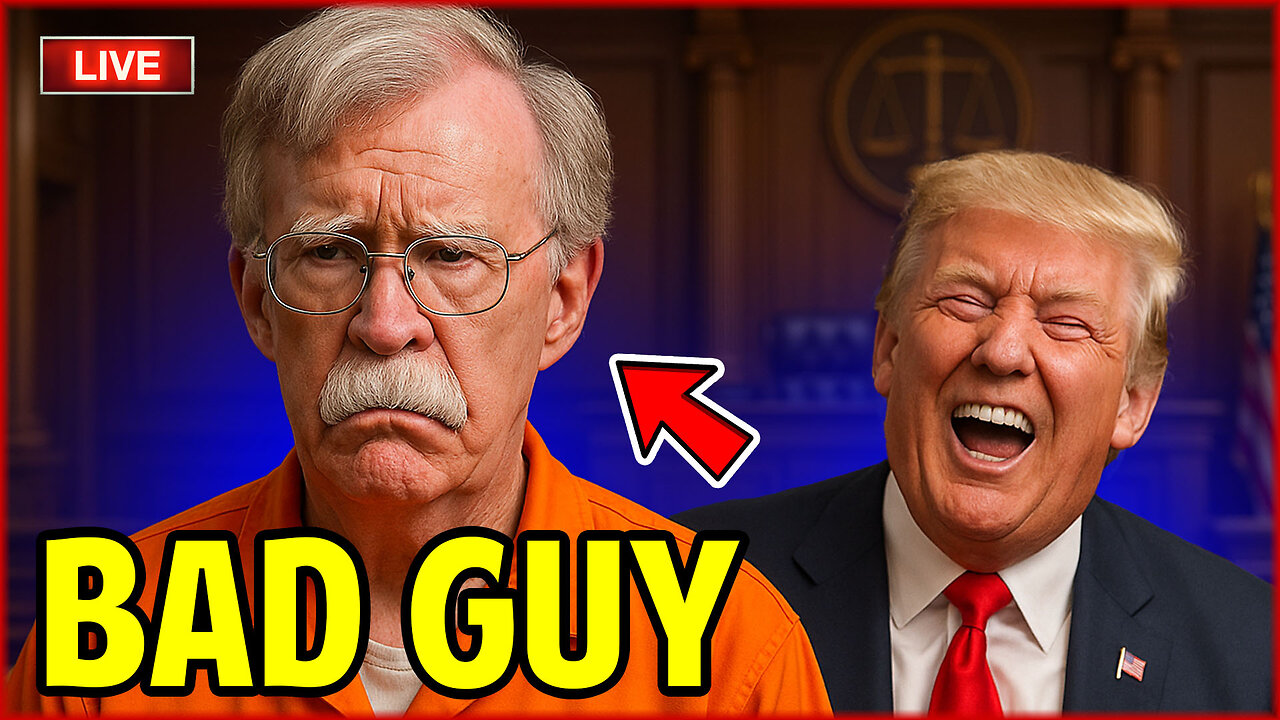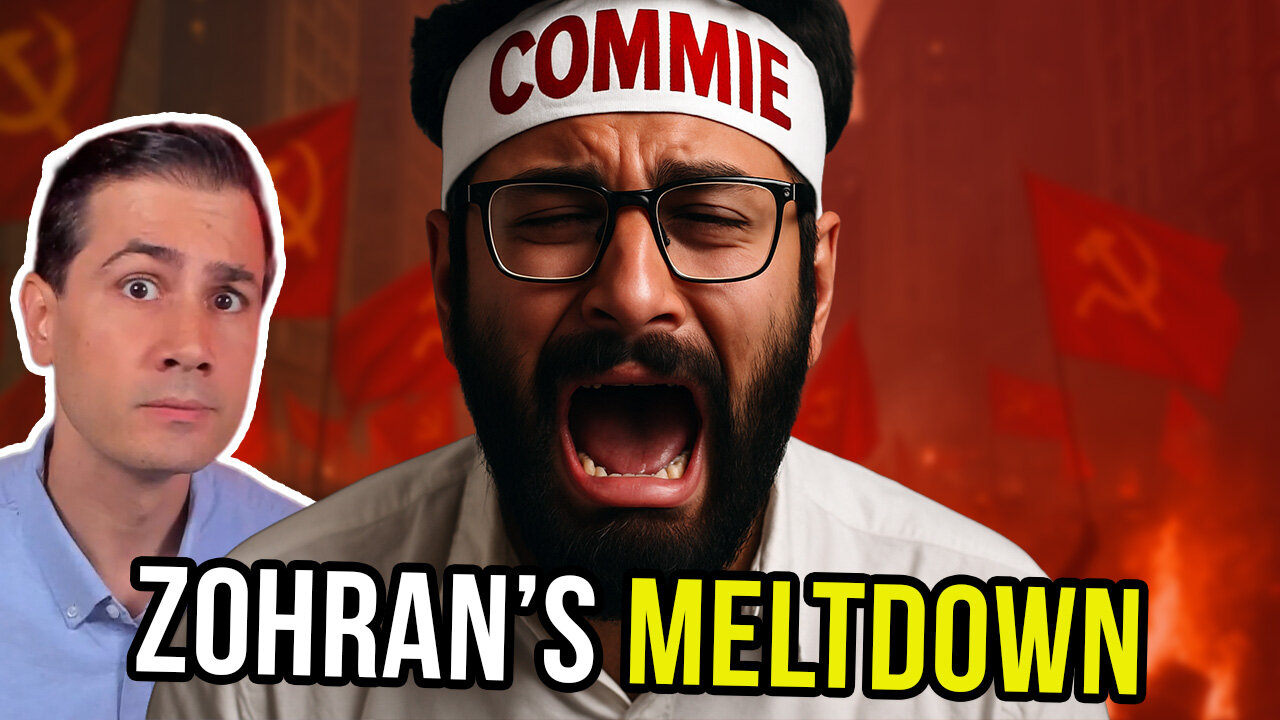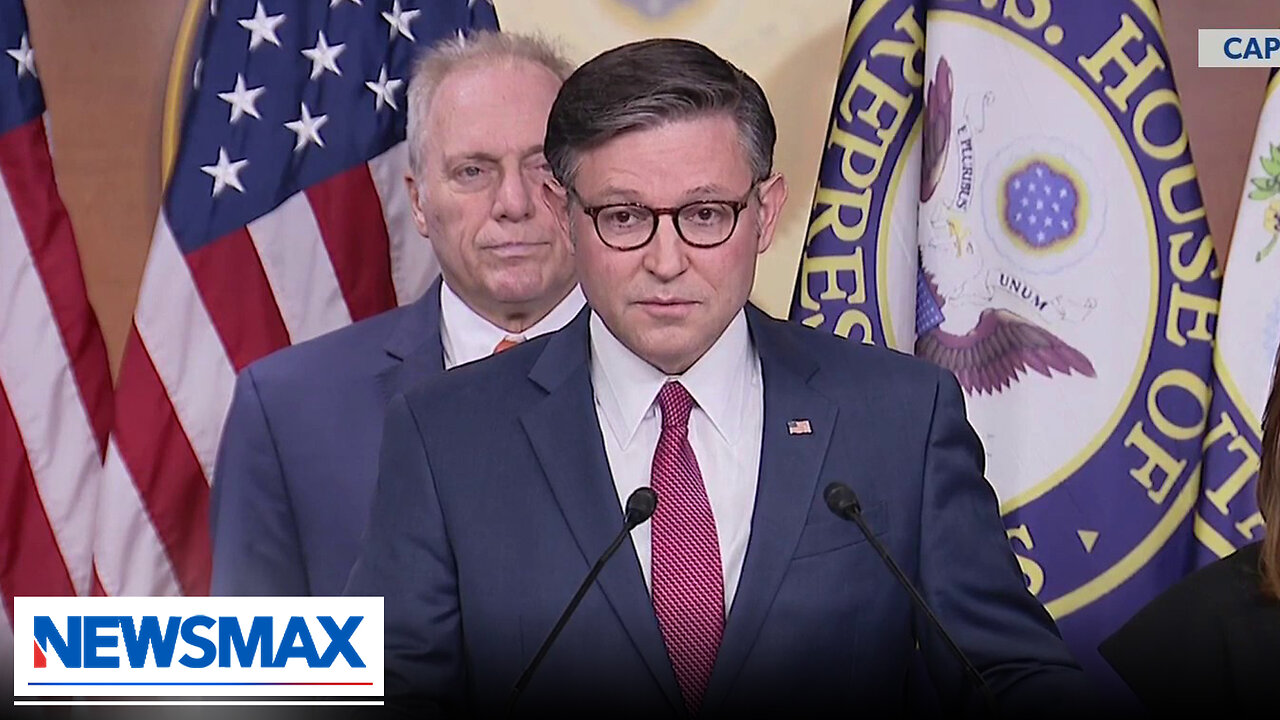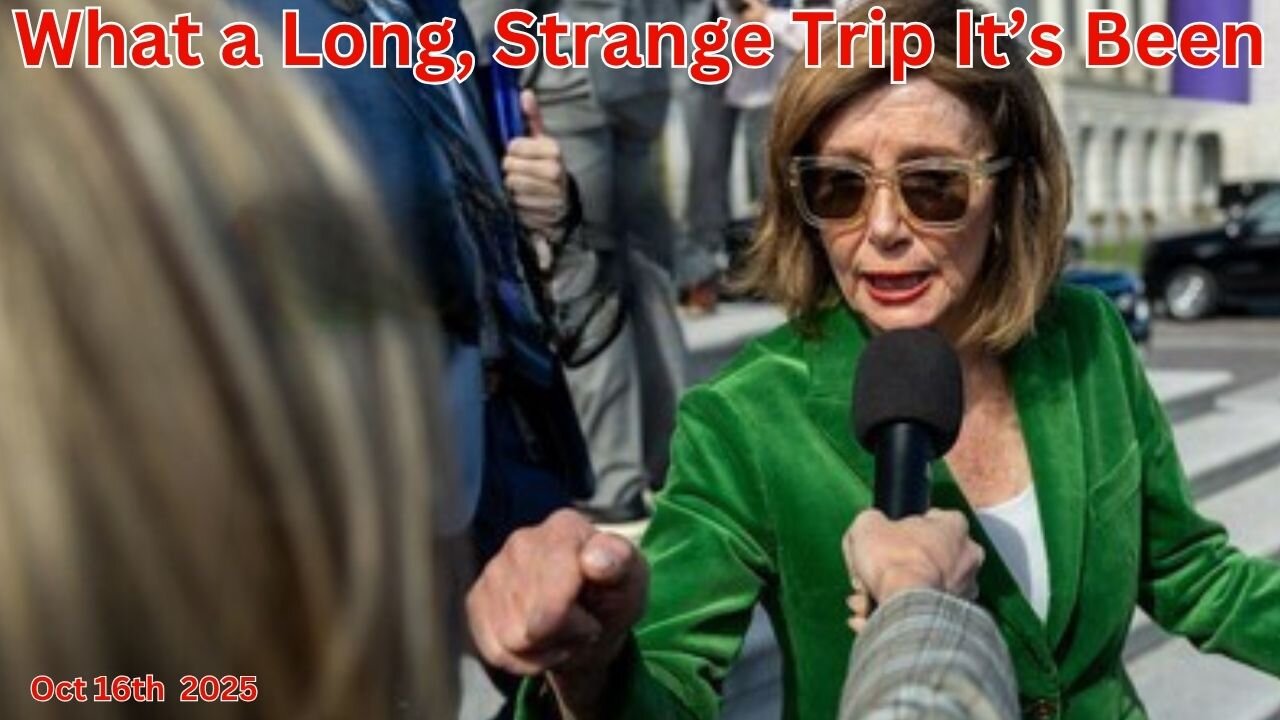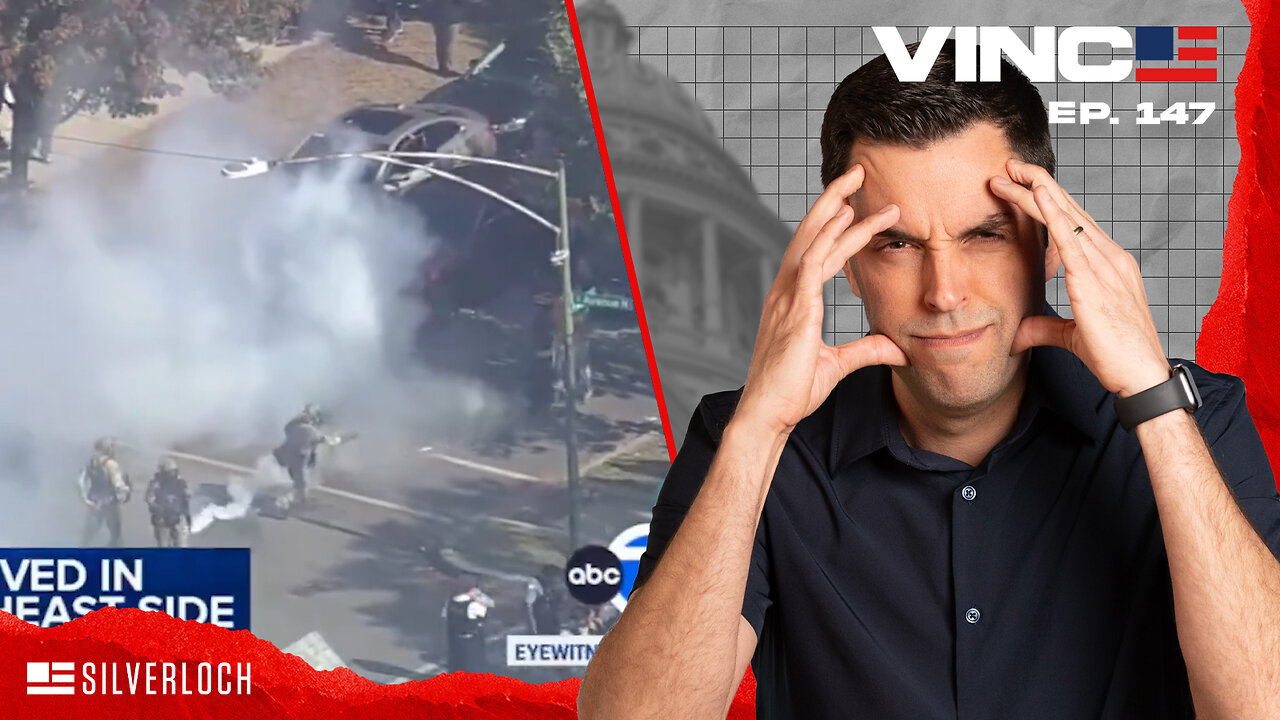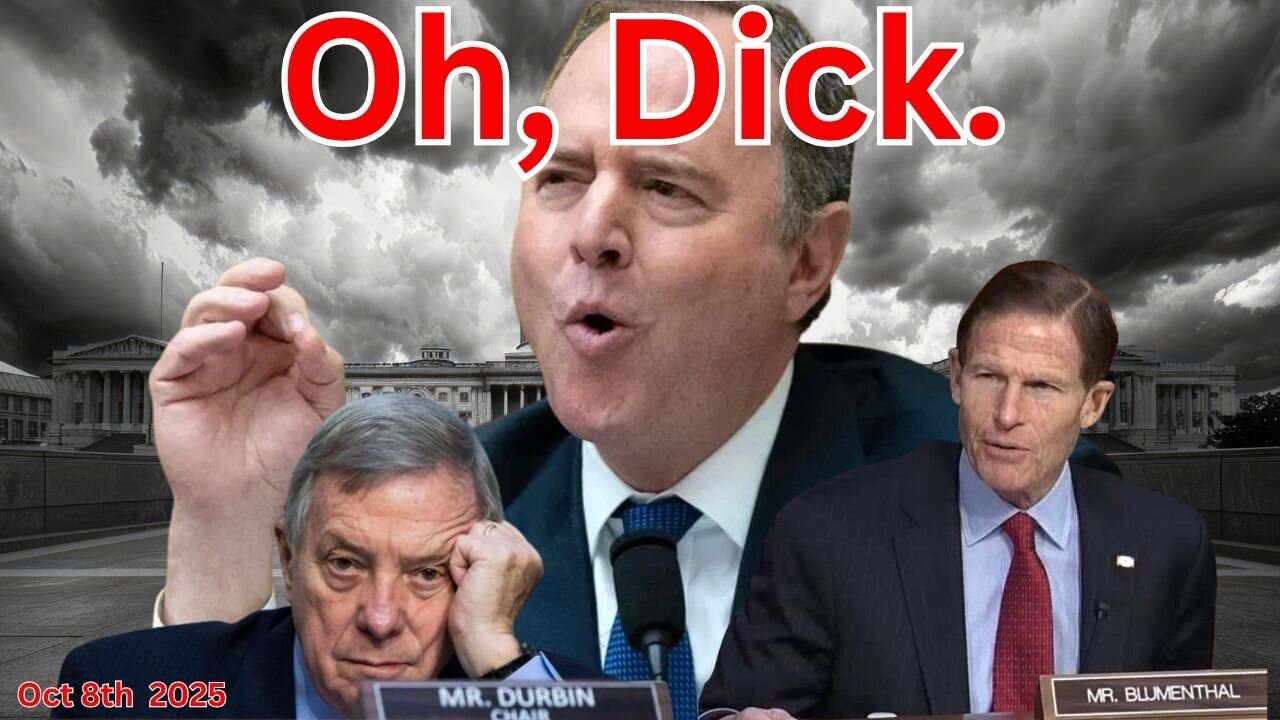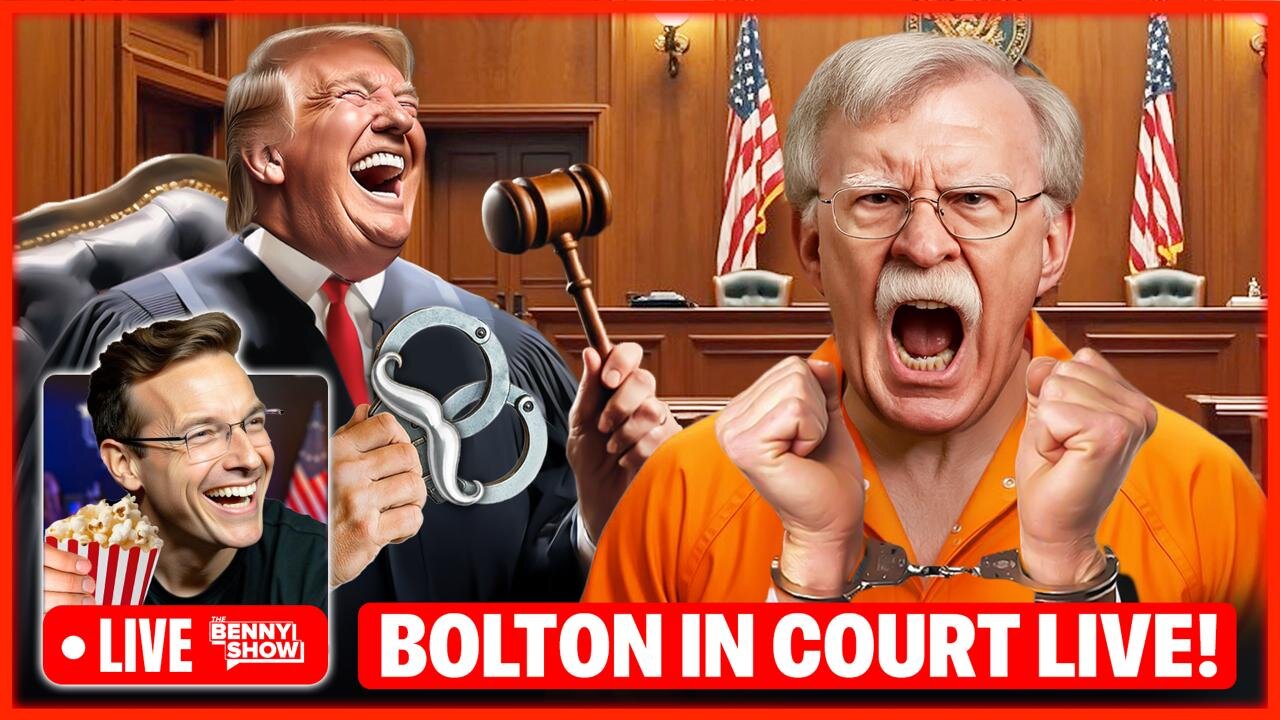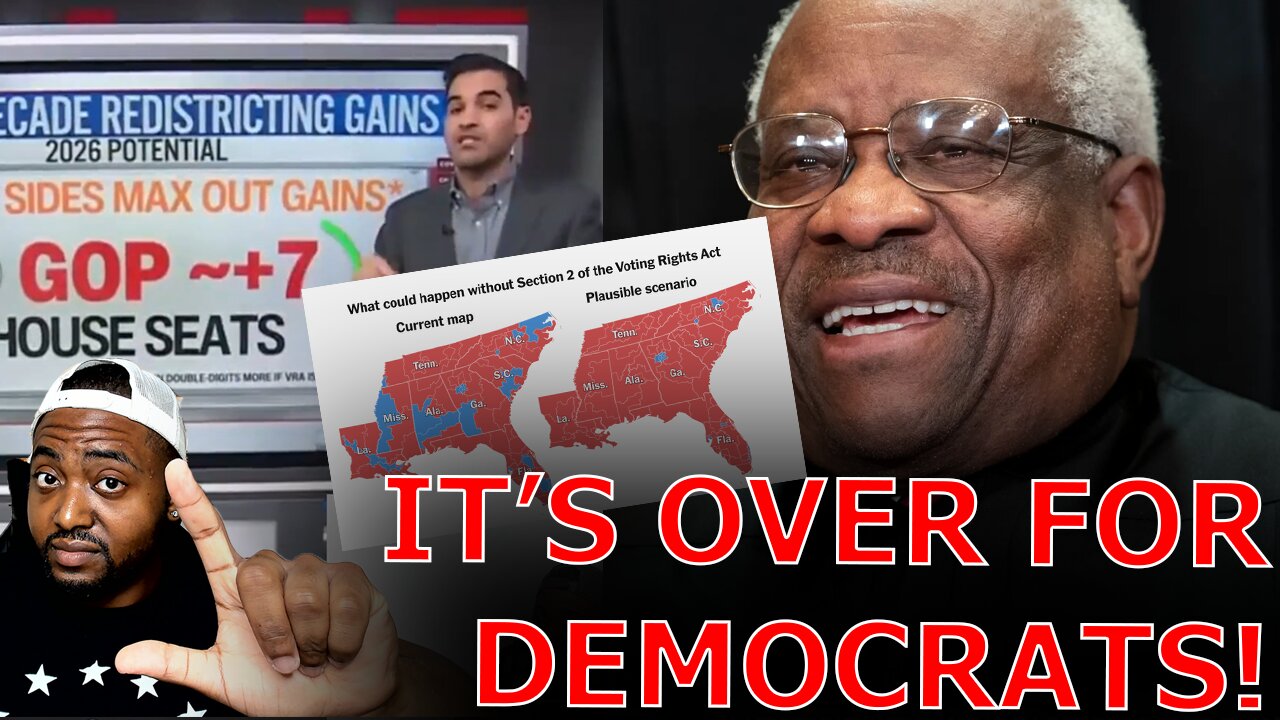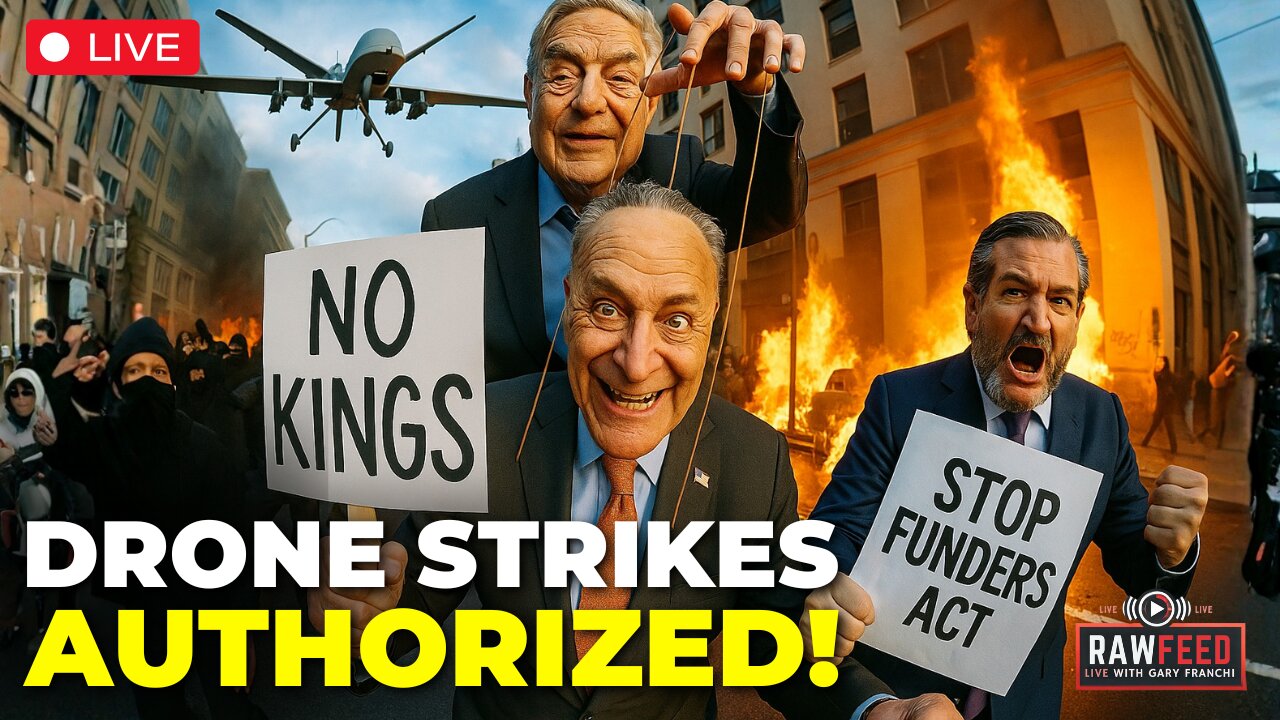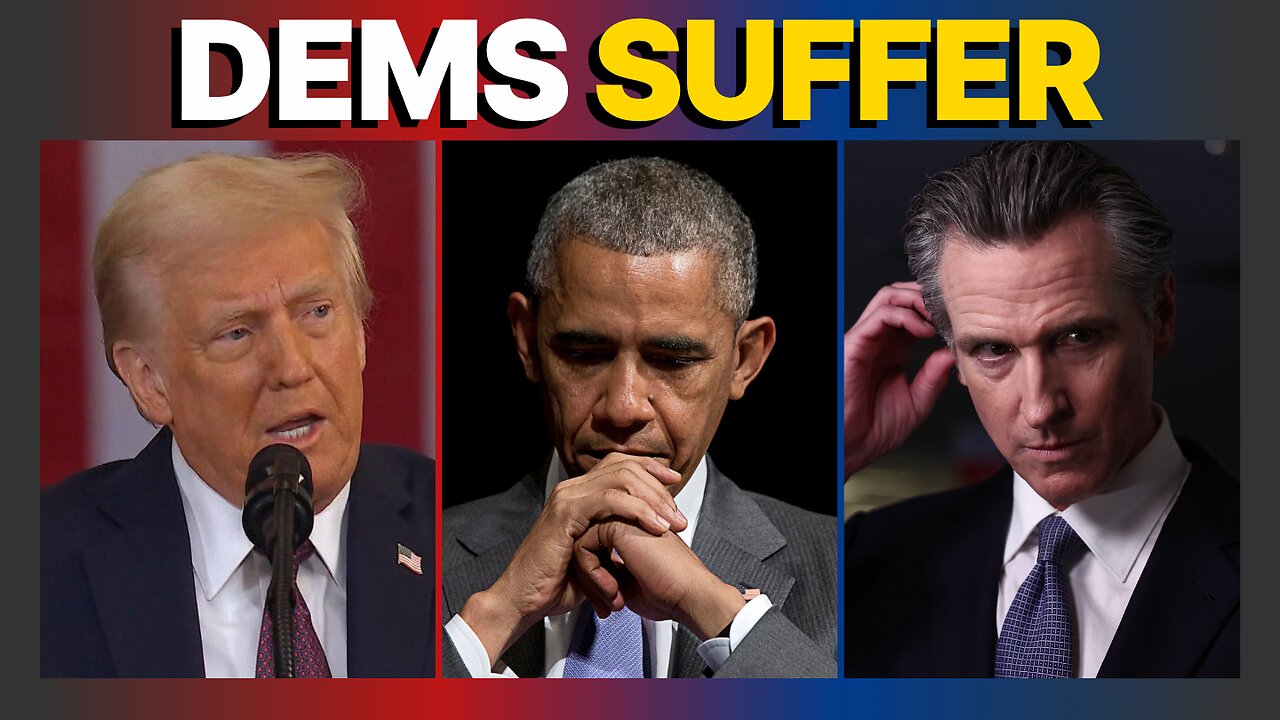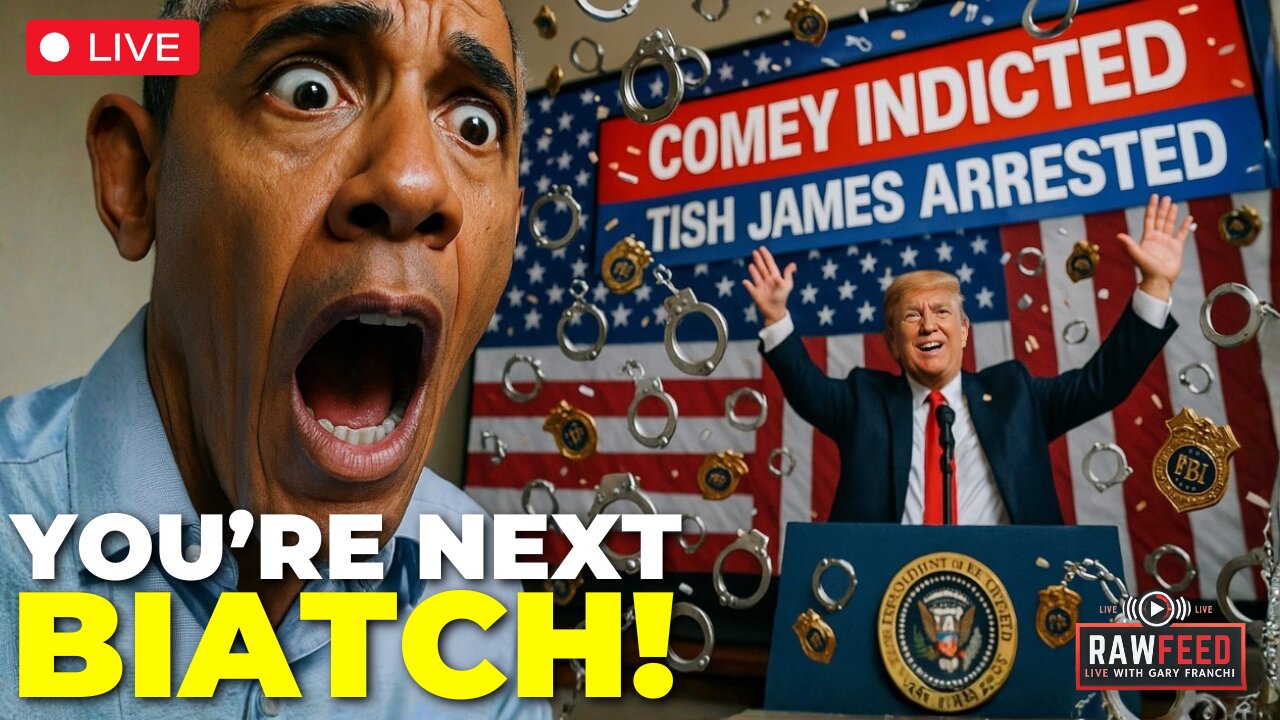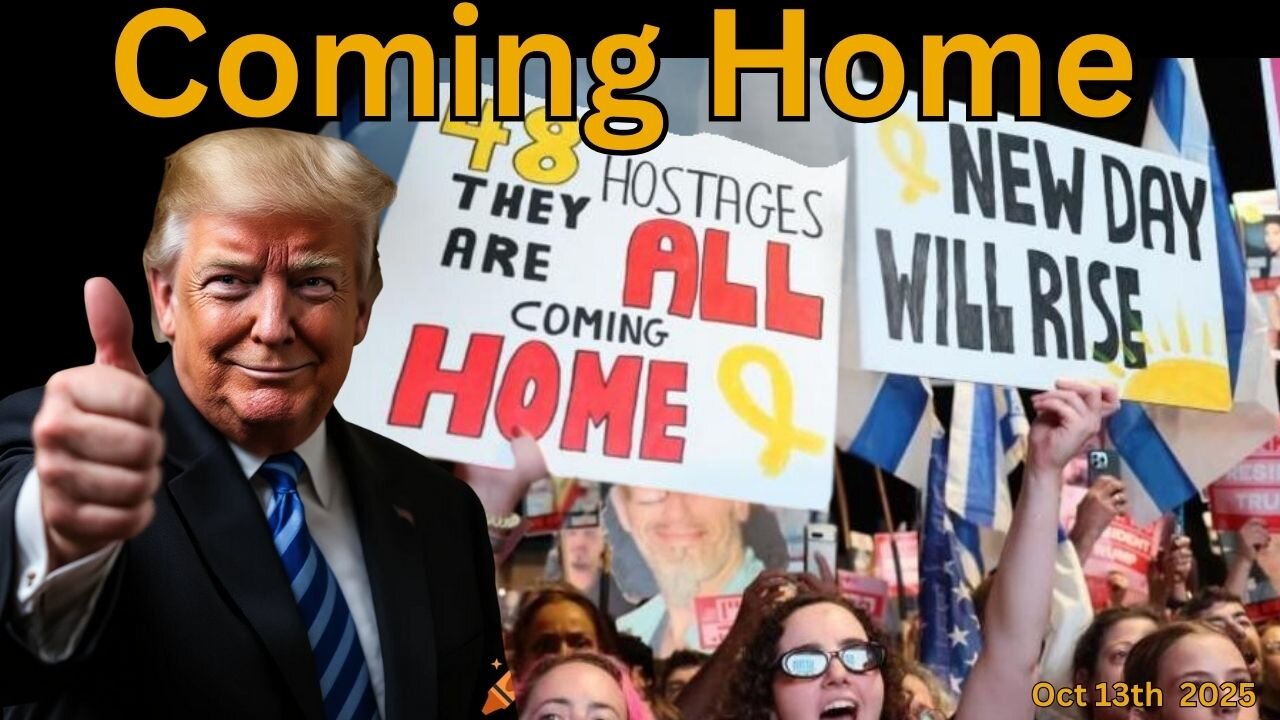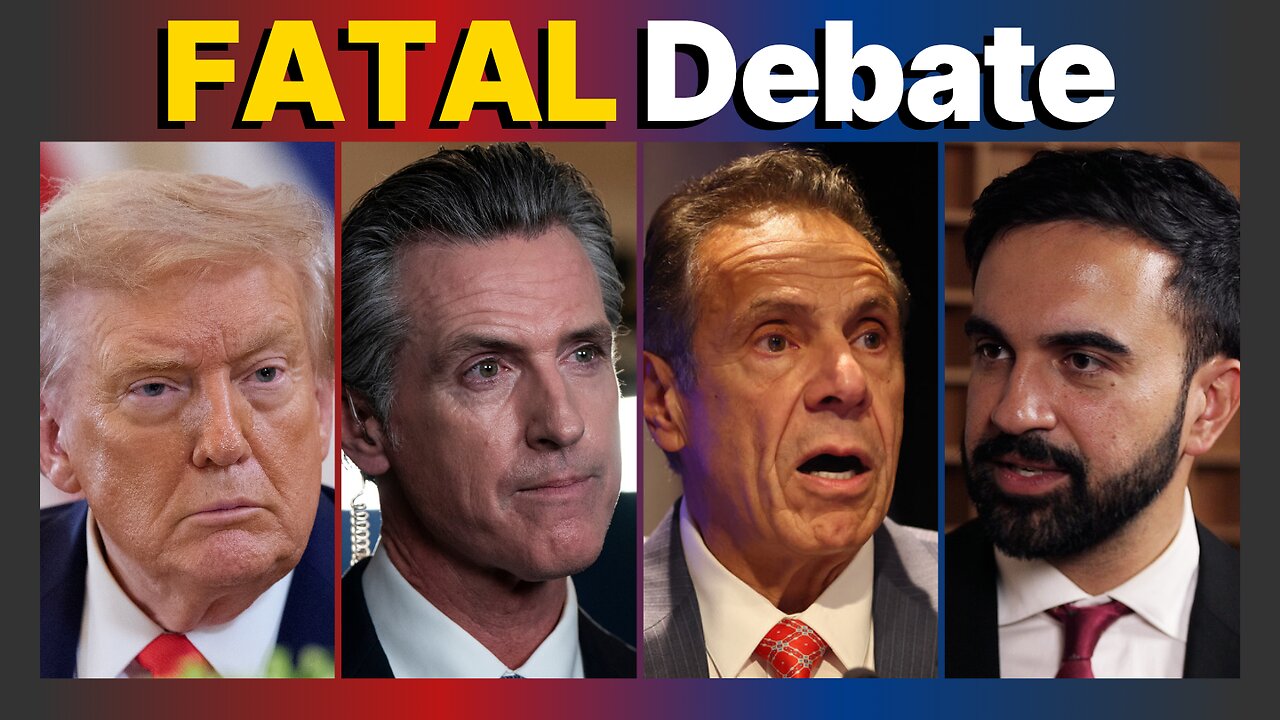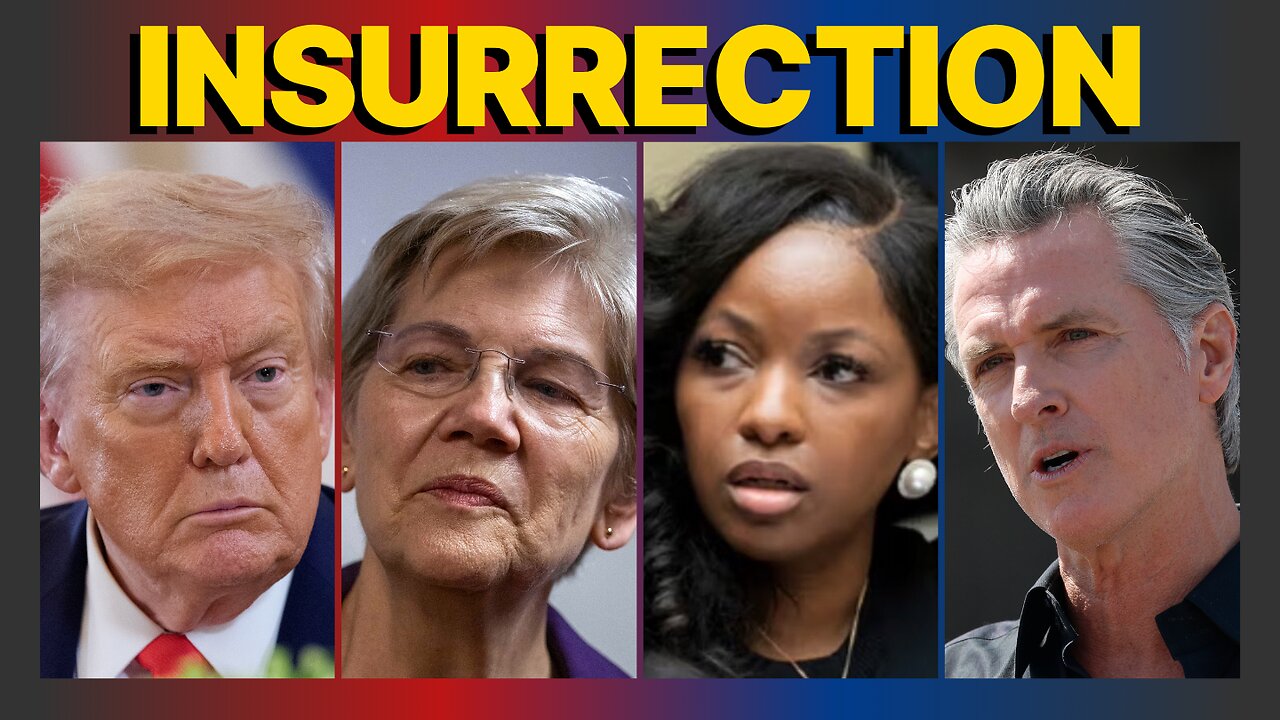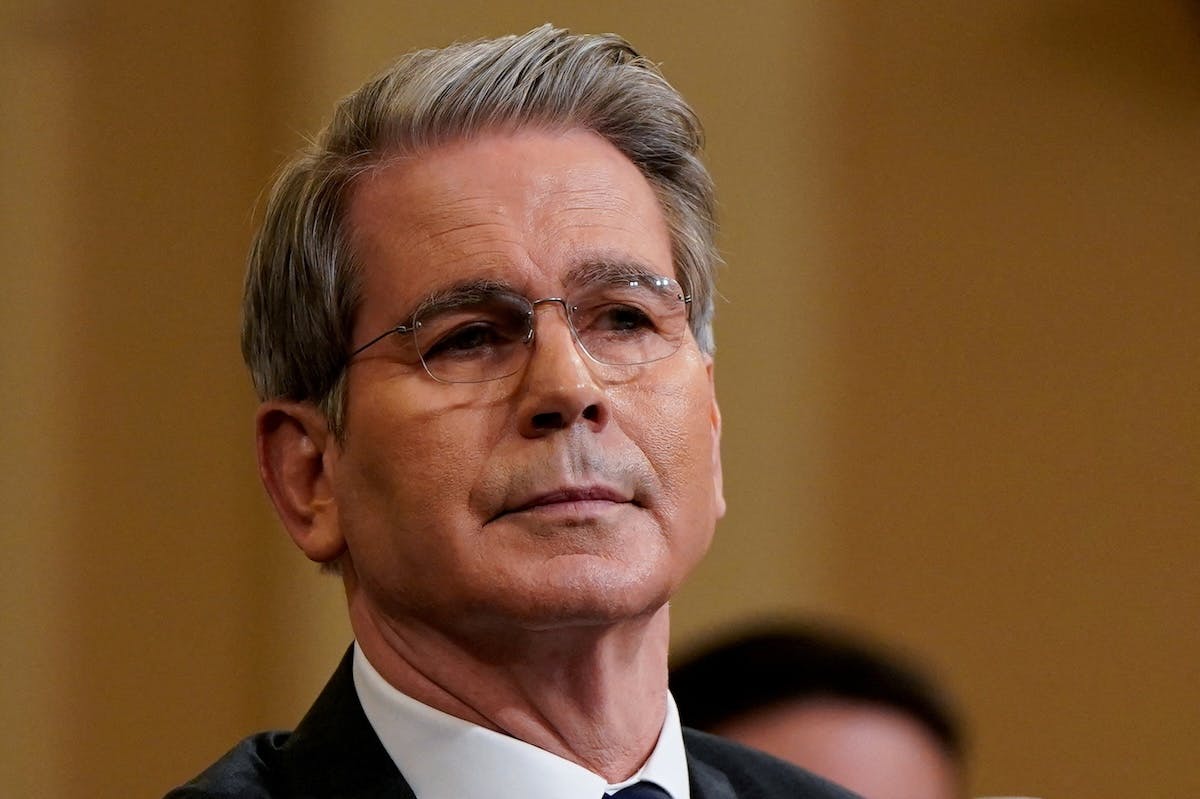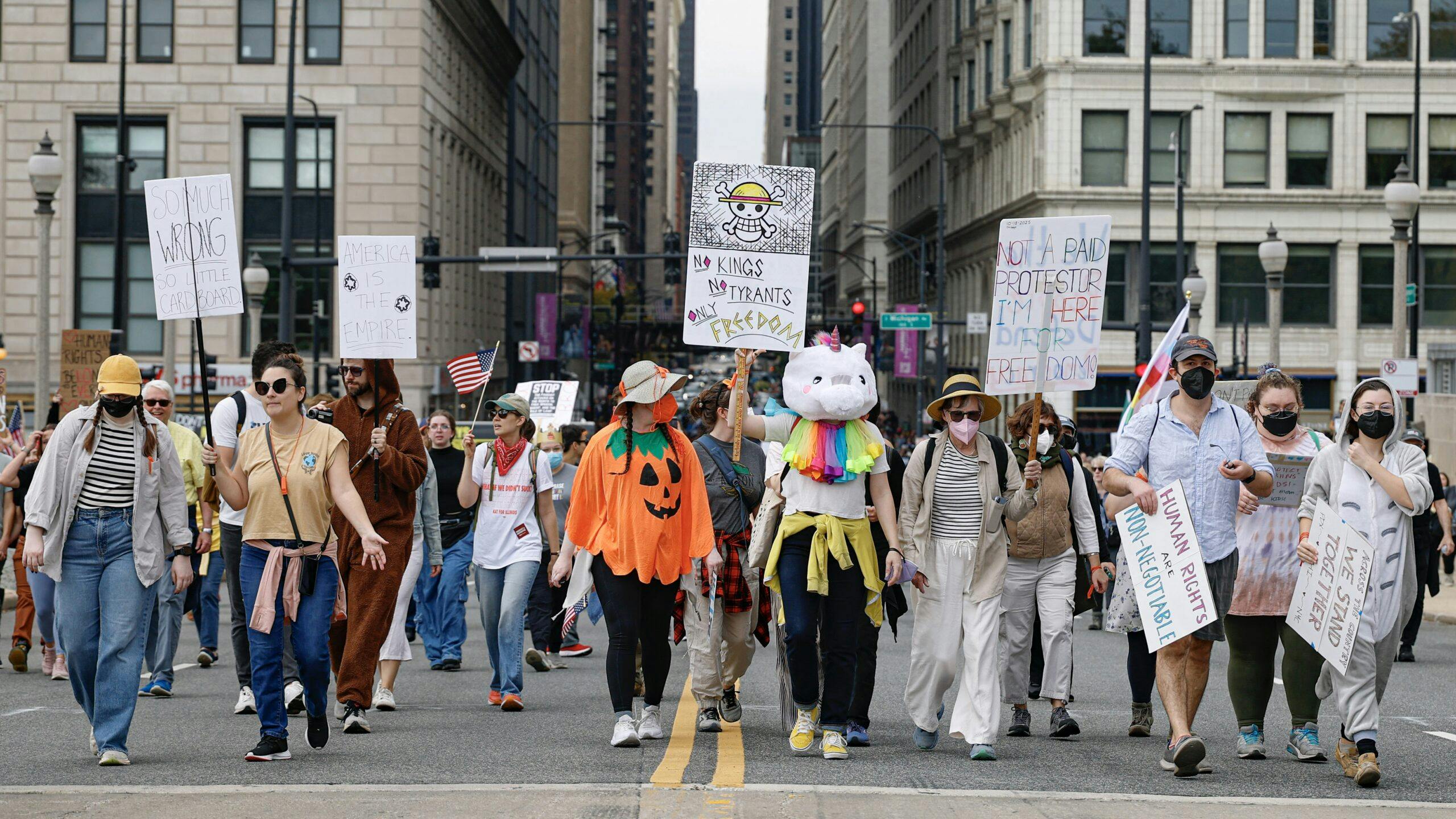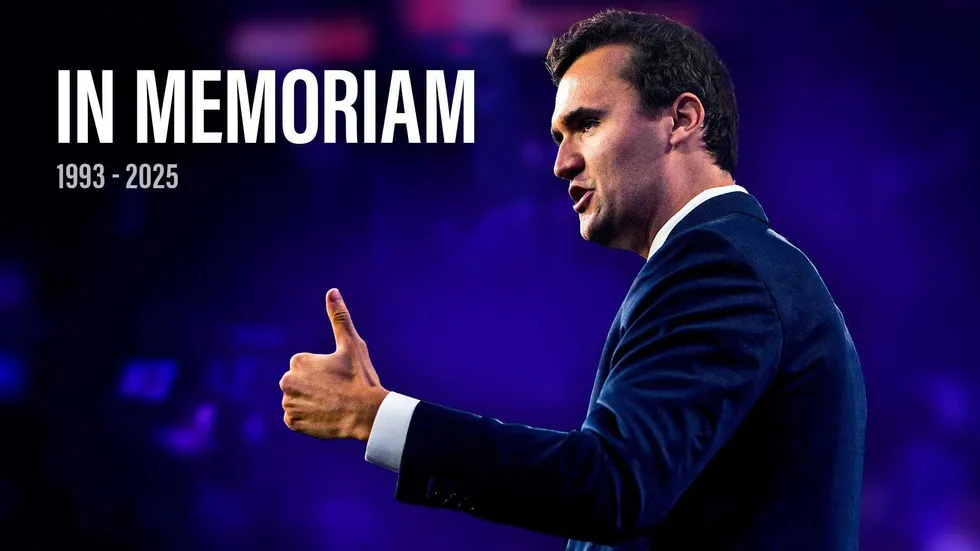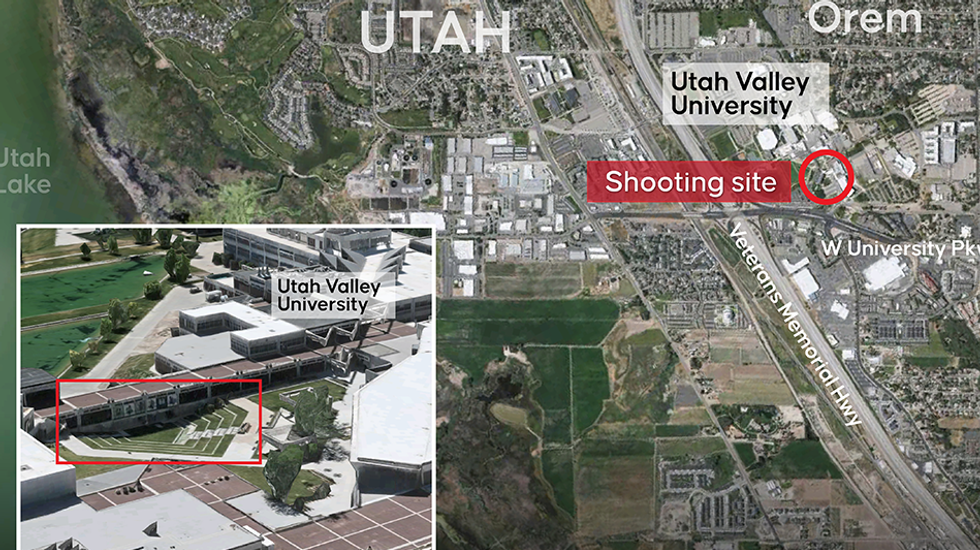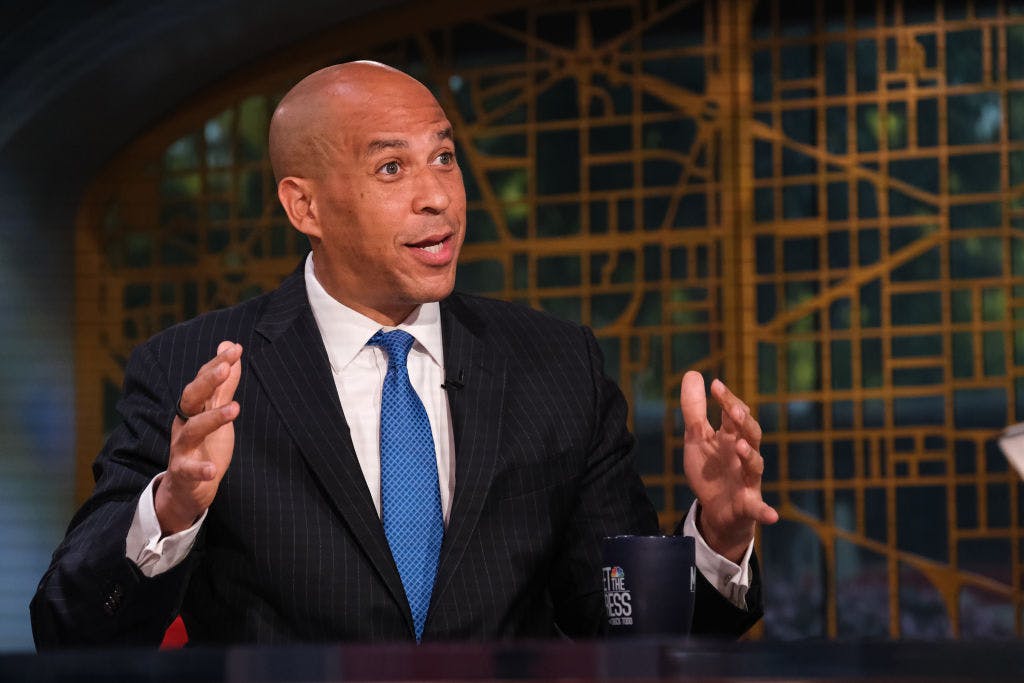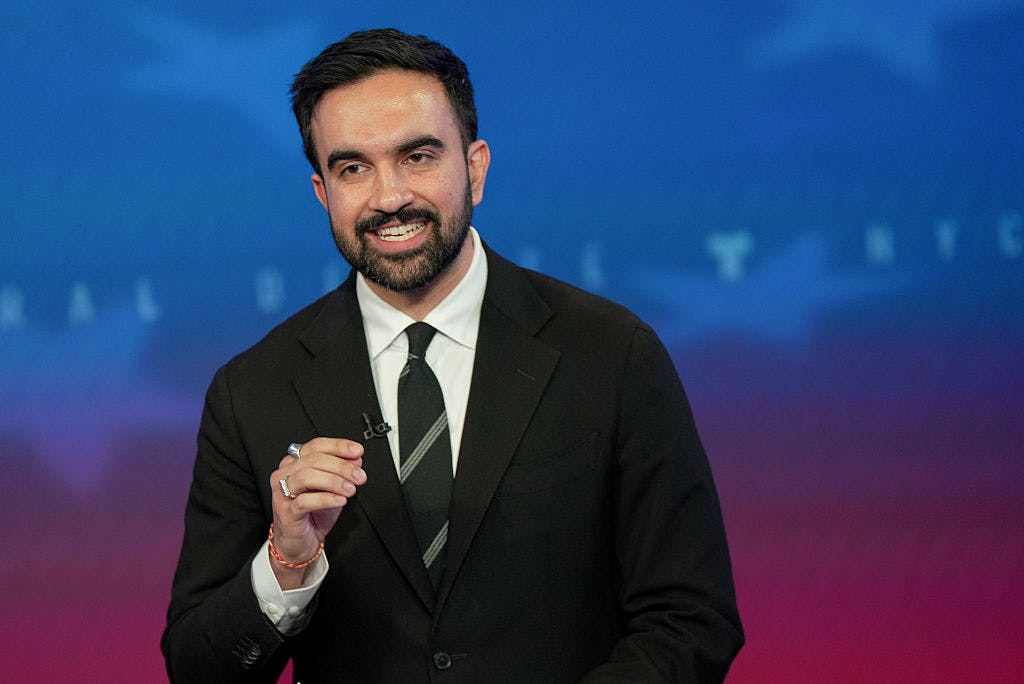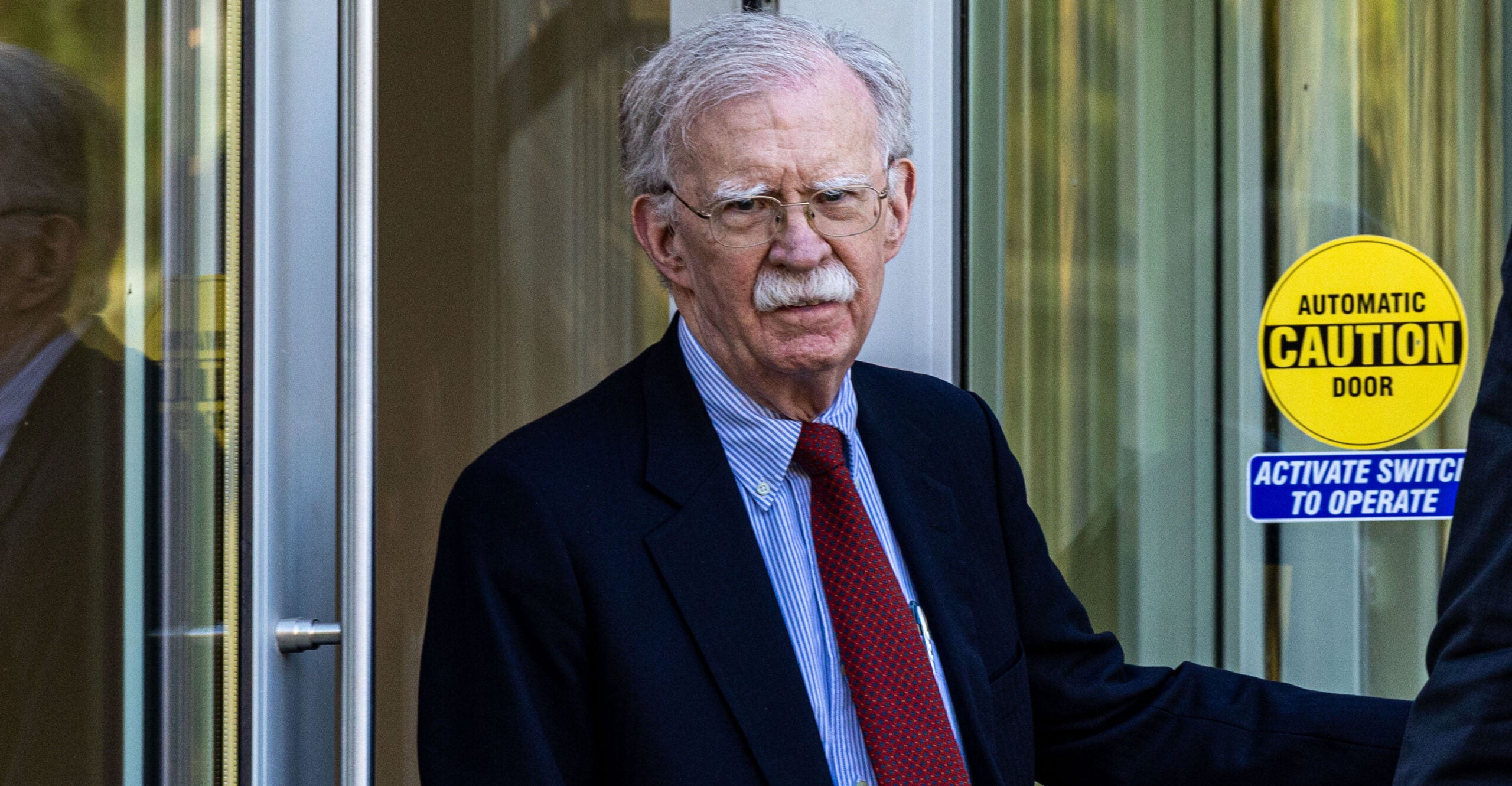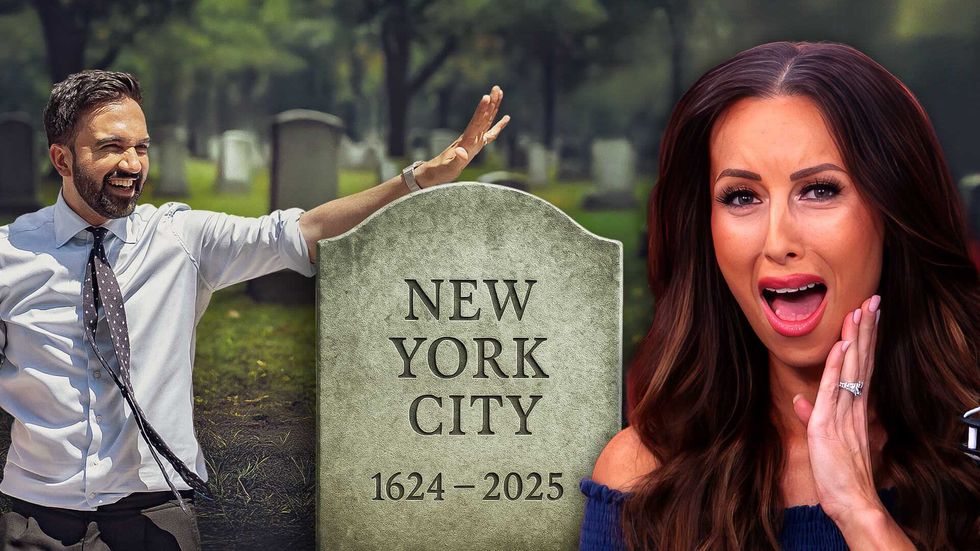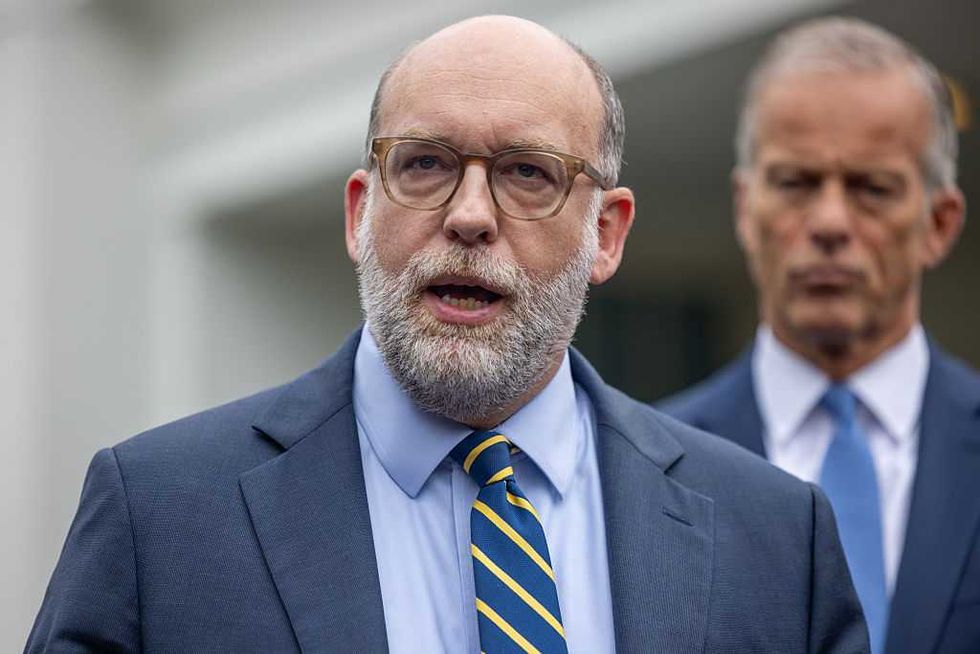New Poll Shines Important Light on the Deep State Rising in the Second Trump Admin
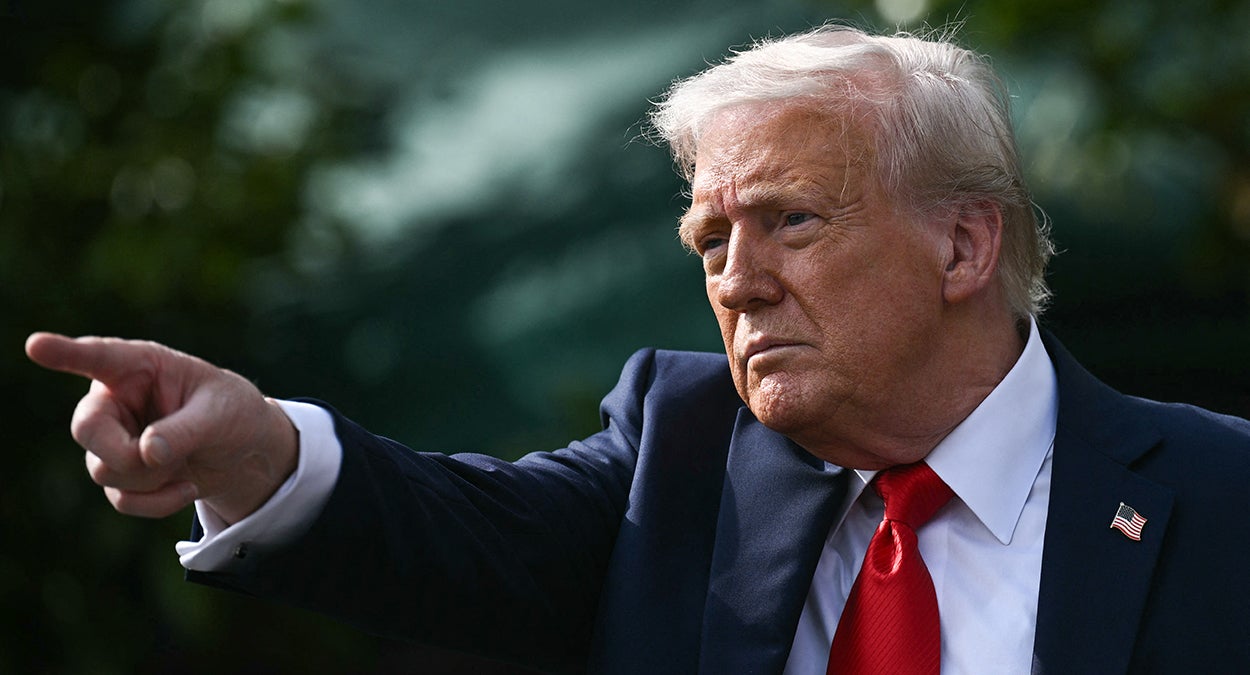
A surprising number of federal bureaucrats who work in Washington, D.C., plan to oppose President Donald Trump from within the government—a deep state taking shape in his second term.
D.C.-based bureaucrats are split along partisan lines, with Republicans planning to support the president and Democrats planning to oppose him, according to an RMG Research survey commissioned by the Napolitan Institute to coincide with Trump’s first 100 days in office. A whopping 75% of bureaucrats who voted for Vice President Kamala Harris in November say they would disobey a lawful Trump order if they consider it bad policy.
In a refreshing change from Trump’s first term, Republicans in the government largely plan to support the president, the survey finds. This means the Trump 47 deep state phenomenon falls along partisan lines, as opposed to the Trump 45 deep state, in which many Republicans joined Democrats.
While this partisan divide reflects the polarization in the electorate, it still seems remarkable that people who work for the government plan to undermine the president from within his own administration.
Who Are ‘Federal Government Managers?’
RMG Research, the firm led by Scott Rasmussen, conducted three surveys in mid-March to study three different segments of the population. The polling firm focused on what it calls the Elite 1% who have postgraduate degrees, earn more than $150,000 annually, and live in densely populated areas; Main Street Americans who meet none of these three criteria and who represent between 70% and 75% of the U.S. population; and Federal Government Managers—federal employees who live in the National Capital Region around Washington and earn at least $75,000 annually.
Main Street Americans tend to have less faith in government and want more freedom for Americans, while the Elite 1% tend to have more faith in government and say Americans have too much freedom. Federal Government Managers tend to favor more government, regardless of party.
The Deep State Taking Shape
RMG Research surveyed bureaucrats in December, asking a very important question.
“Imagine that you were the head of a federal government agency. Suppose that President Trump gave you an order that was legal but you believed was bad policy. Would you follow the president’s order or do what you thought was best?” the survey asked.
Only 17% of Democratic managers who voted for Harris said they would follow Trump’s order, while three times as many (64%) said they would ignore it. This amounts to a declaration that they plan to act like a deep state, opposing the people’s elected president.
In March, the numbers grew even more stark.
This time, only 16% of Harris-voting bureaucrats said they would follow Trump’s order, while three-quarters (75%) said they would ignore it. This means that even while Trump has been culling the bureaucracy, many federal employees have become more brazen in their desire to join the deep state.

Meanwhile, most federal managers who voted for Trump (80%) said they would follow the order, while 18% said they would do what they thought was best.
RMG Research also asked bureaucrats whether they would support or resist the administration.
Not surprisingly, bureaucrats who voted for Trump overwhelmingly said they would support the administration (92%), with 47% saying they plan to “strongly support” it and 45% saying they plan to “somewhat support” it. The remaining 8% said they would “neither support nor resist” it.
Meanwhile, no Harris-voting bureaucrat said he or she would “strongly support” the administration, and only 7% said they would “somewhat support it.” The vast majority (76%) said they would either “somewhat” (35%) or “strongly” (41%) resist.
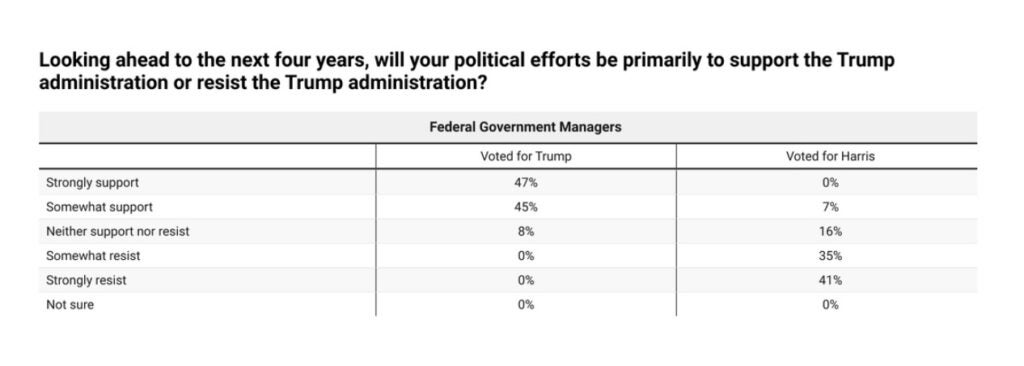
The Partisan Divide
RMG Research asked bureaucrats about specific policies in the Trump administration and found a reliable partisan divide on most issues. This divide again affirms the idea that left-leaning bureaucrats are forming a deep state while conservative federal employees aim to follow Trump’s orders.
For instance, most Republican bureaucrats (52%) said Trump’s efforts to deport illegal aliens have not gone far enough, and 10% said they have gone too far. Most Democrats (56%) said the deportations have gone too far, while only 17% said they do not go far enough.
About half of Republicans said the Department of Government Efficiency cuts have not gone far enough, while 12% said they have gone too far. Most Democrats (60%) said the DOGE cuts have gone too far, while only 18% said they have not gone far enough.
Most Republicans (92%) said they want the Trump tax cuts made permanent, while most Democrats (78%) said the opposite.
The survey finds that the bureaucracy is about evenly split, with 48% of federal government managers having voted for Harris and 47% voted for Trump. The December survey found Harris voters outnumbered Trump voters, 52% to 45%. This shift mostly falls within the margin of error, but it may also reflect a change brought about by Trump policies.
Elite 1% Joining the Resistance—But There’s a Catch
Nearly half (48%) of respondents in the Elite 1% said in December that they would work on supporting Trump. In the March survey, only 41% said they plan on supporting the new administration. Meanwhile, 39% said they would resist Trump in December, while that number ticked up to 45% in March.
RMG Research asked the Elite 1% what they would do if they were the head of a federal agency and faced with a lawful Trump order they considered bad policy. In December, 49% of them said they would follow the president’s order, while only 38% said they would ignore it. In March, only 43% said they would follow the order, and 45% said they would oppose it.
While the elites are moving away from Trump, a wide gender gap has emerged among them.
Most elite men (61%) approved of the president, while most elite women (71%) disapproved. Elite men proved more likely to say they will support the administration (55%) than oppose it (36%). The opposite is true among elite women, who were more likely to oppose (56%) than support it (26%).
Elites are more likely to agree with bureaucrats on key issues, but when asked if cutting government spending would be good or bad for the economy, they sided with voters.
More than half of elites (56%) said cutting government spending would be “very good” (23%) or “somewhat good” (33%) for the economy, while 34% said it would be “somewhat bad” (21%) or “very bad” (13%) for it.
This aligns with most voters (62%) who say cutting spending would be “very good” (26%) or “somewhat good” (34%), and the 29% who say it would be bad.
Bureaucrats proved more split, with 46% saying spending cuts would harm the economy, while 42% said they would help it.
Isolated From Voters
The RMG Research survey found that bureaucrats and the Elite 1% tend not to see eye to eye with voters.
When asked if government control and regulation of the economy would be better or worse for the economy, bureaucrats and elites proved more likely to favor government.
Voters proved more likely to say less government control and regulation would be better (53%) than more control (28%). Democratic bureaucrats favored more control (51%) over less (38%), and Republican bureaucrats also preferred more control (55%) over less (44%). More elites also favored more control (50%) over less (40%).
A different RMG Research survey in March found that 77% of voters fault the government for paying “not enough attention to what voters want.”
The survey also found key gaps on the issues voters and bureaucrats consider most important.
RMG Research asked respondents to say in their own words what political issue they consider most important. Voters chose some form of the economy (35%), immigration (17%), Trump (8%), and war (5%). The economy also emerged as a top issue for bureaucrats (20%) and elites (23%), but climate change drew more attention among both bureaucrats (8%) and elites (9%) than immigration. Bureaucrats mentioned health care (9%) and guns or crime (8%) more than voters.
RMG Research surveyed 1,000 registered voters on March 25: 1,000 Elite 1% voters between March 20 and March 26, and 500 federal government managers between March 18 and March 25. The margin of error for the Elite 1% is plus or minus 3.1% and the margin of error for federal government managers is plus or minus 4.4%.
Confirming the Deep State
This survey confirms that bureaucrats in the administrative state plan to oppose Trump from within, whether that means by refusing lawful orders or by engaging in political activism against Trump outside of work hours.
This deep state phenomenon undermined the first Trump administration, and the president has begun efforts to oppose it in this new one.
My book, “The Woketopus: The Dark Money Cabal Manipulating the Federal Government,” reveals how major left-wing donors prop up a vast network of woke activist groups that staffed and advised the federal government under Biden. While Trump has removed much of this apparatus from the government, some tentacles remain.
Many of the same groups that influenced the Biden administration—such as the American Civil Liberties Union and the Center for American Progress—are now suing Trump to block his policies. The American Federation of Government Employees, the largest union within the federal government and part of the Woketopus union AFL-CIO, has filed multiple lawsuits to hamstring Trump’s efforts.
Congress can help Trump combat this deep state phenomenon by passing laws preventing public sector unions in the federal government, restraining regulations, and reining in agencies that have been insulated from Congress and the president, such as the Consumer Financial Protection Bureau.
The post New Poll Shines Important Light on the Deep State Rising in the Second Trump Admin appeared first on The Daily Signal.
Originally Published at Daily Wire, Daily Signal, or The Blaze
What's Your Reaction?
 Like
0
Like
0
 Dislike
0
Dislike
0
 Love
0
Love
0
 Funny
0
Funny
0
 Angry
0
Angry
0
 Sad
0
Sad
0
 Wow
0
Wow
0
